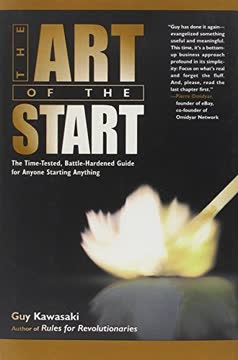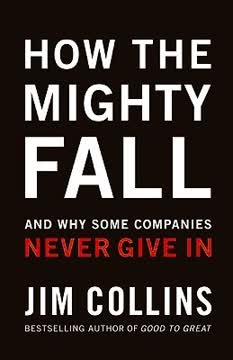Key Takeaways
1. Take 100% Responsibility for Your Life
You must take personal responsibility. You cannot change the circumstances, the seasons, or the wind, but you can change yourself.
You create your life. Taking full responsibility means acknowledging that you are the primary creative force in your life. This mindset shift empowers you to respond proactively to events rather than react passively. It involves recognizing that your thoughts, actions, and responses shape your experiences and outcomes.
The E+R=O formula. This stands for Event + Response = Outcome. While you can't always control external events, you have complete control over your responses. By choosing empowering responses, you can influence outcomes in your favor. This approach eliminates victim mentality and puts you in the driver's seat of your life.
Practice responsibility by:
- Avoiding blame and excuses
- Focusing on solutions rather than problems
- Asking "How can I?" instead of "Why me?"
- Learning from mistakes instead of dwelling on them
2. Clarify Your Vision and Set Specific Goals
If you want to be successful, you have to take 100% responsibility for everything that you experience in your life.
Vision drives success. A clear, compelling vision of your desired future acts as a powerful motivator and guide. It provides direction and helps you make decisions aligned with your long-term aspirations. Without a vision, you risk drifting aimlessly or being swayed by others' expectations.
SMART goals are crucial. Transform your vision into Specific, Measurable, Achievable, Relevant, and Time-bound goals. This process makes your aspirations concrete and actionable. Write down your goals, review them regularly, and create action plans to achieve them.
Effective goal-setting techniques:
- Visualize your goals as already achieved
- Create a vision board with images of your desired outcomes
- Break large goals into smaller, manageable tasks
- Set both short-term and long-term goals
- Regularly review and adjust your goals as needed
3. Believe in Yourself and Your Ability to Succeed
Whatever the mind can conceive and believe, it can achieve.
Self-belief is foundational. Your beliefs about yourself and your capabilities directly impact your actions and results. Cultivating a strong sense of self-efficacy – the belief in your ability to succeed – is crucial for overcoming obstacles and persisting in the face of challenges.
Challenge limiting beliefs. Identify and question self-limiting beliefs that hold you back. Replace them with empowering beliefs that support your goals and aspirations. Remember that beliefs are not facts – they can be changed and upgraded.
Techniques to build self-belief:
- Practice positive self-talk and affirmations
- Celebrate your past successes, no matter how small
- Visualize yourself succeeding in your endeavors
- Surround yourself with supportive, encouraging people
- Take on small challenges to build confidence gradually
4. Take Consistent Action Towards Your Goals
The world doesn't pay you for what you know; it pays you for what you do.
Action is the key to success. Knowledge and good intentions are not enough – you must consistently take action to make progress. Develop a bias for action, focusing on doing rather than just planning or thinking. Remember that imperfect action is better than perfect inaction.
Overcome procrastination. Recognize that procrastination often stems from fear or perfectionism. Break tasks into smaller, manageable steps to make them less daunting. Use techniques like the "5-Second Rule" or the "Pomodoro Technique" to get started and maintain momentum.
Strategies for consistent action:
- Create daily to-do lists aligned with your goals
- Use the "Rule of 5" – do five specific things daily to advance your goals
- Implement systems and habits that support your objectives
- Hold yourself accountable or find an accountability partner
- Celebrate small wins to maintain motivation
5. Learn from Feedback and Adjust Your Approach
Feedback is the breakfast of champions.
Embrace feedback. View feedback as valuable information that can help you improve and grow. Seek out constructive criticism from mentors, peers, and even customers or clients. Develop the ability to listen without becoming defensive, focusing on the lessons and insights provided.
Adopt a growth mindset. See challenges and setbacks as opportunities for learning and improvement. This perspective allows you to bounce back from failures more quickly and maintain motivation in the face of obstacles. Remember that success often comes through iteration and refinement.
Effective feedback practices:
- Regularly ask for specific feedback on your performance
- Implement a system to track and analyze your results
- Conduct post-mortems on both successes and failures
- Be open to changing your approach based on new information
- Use feedback to identify areas for skill development
6. Surround Yourself with Successful People
You are the average of the five people you spend the most time with.
Environment shapes behavior. The people you associate with have a profound impact on your mindset, habits, and success. Deliberately seek out relationships with individuals who inspire and challenge you to grow. Limit exposure to negative influences that may hold you back.
Create a success network. Build relationships with mentors, peers, and collaborators who support your goals and share your values. Join mastermind groups, attend industry events, and participate in communities of like-minded individuals. These connections can provide support, advice, and opportunities.
Ways to upgrade your network:
- Identify role models in your field and study their habits
- Attend conferences and workshops in your area of interest
- Volunteer for organizations aligned with your goals
- Offer value to others before asking for anything in return
- Be willing to distance yourself from toxic relationships
7. Continuously Improve and Develop New Skills
If you are not willing to learn, no one can help you. If you are determined to learn, no one can stop you.
Embrace lifelong learning. In a rapidly changing world, continuous learning is essential for staying relevant and competitive. Develop a habit of regular reading, attending courses, and seeking out new experiences. Be curious and open to new ideas and perspectives.
Invest in yourself. Allocate time and resources for personal and professional development. This could involve formal education, online courses, workshops, or self-directed learning. Remember that investing in your skills and knowledge is one of the highest-return investments you can make.
Strategies for continuous improvement:
- Set aside dedicated time for learning each day
- Create a personal development plan with specific learning goals
- Experiment with different learning methods (reading, audio, video, hands-on)
- Teach others what you learn to reinforce your understanding
- Seek out challenging projects that stretch your abilities
8. Focus on Your Core Genius and Delegate the Rest
Do what you do best and delegate the rest.
Identify your strengths. Discover your unique talents and areas of exceptional ability – your "core genius." These are activities that you excel at and enjoy, often feeling energized rather than drained when performing them. Focusing on these areas allows you to maximize your impact and value.
Learn to delegate effectively. Recognize that you can't do everything yourself, nor should you try. Identify tasks that can be delegated to others, freeing up your time and energy for high-value activities. Develop systems and train others to handle routine or less critical tasks.
Tips for leveraging your core genius:
- Conduct a personal SWOT analysis to identify strengths and weaknesses
- Track how you spend your time and energy for a week
- Identify tasks that can be automated, eliminated, or delegated
- Invest in building a strong support team or network
- Continuously refine your focus as you grow and evolve
9. Manage Your Time Effectively
Either you run the day, or the day runs you.
Time is your most valuable resource. Recognize that how you use your time directly impacts your success and quality of life. Develop systems and habits that allow you to make the most of each day, focusing on high-priority activities that align with your goals.
Use time management techniques. Implement strategies like time blocking, the Eisenhower Matrix, or the Pomodoro Technique to increase productivity and focus. Regularly review and optimize your systems to ensure they continue to serve you effectively.
Effective time management practices:
- Plan your day the night before
- Use the 80/20 rule to identify high-impact activities
- Batch similar tasks together for efficiency
- Create boundaries around your time and learn to say no
- Take regular breaks to maintain energy and focus
10. Overcome Fear and Persist Through Challenges
Everything you want is on the other side of fear.
Fear is natural but not insurmountable. Recognize that fear often indicates you're stepping out of your comfort zone, which is necessary for growth. Develop strategies to manage fear, such as reframing it as excitement or focusing on the potential benefits of taking action.
Persistence is key to success. Understand that setbacks and failures are part of the journey to success. Develop resilience by viewing challenges as opportunities to learn and grow. Remember that many successful people faced numerous rejections and failures before achieving their goals.
Techniques for overcoming fear and building persistence:
- Practice visualization to build confidence in facing challenges
- Use affirmations to counter negative self-talk
- Break daunting tasks into smaller, less intimidating steps
- Celebrate small victories along the way
- Learn from role models who have overcome similar obstacles
Last updated:
FAQ
What's The Success Principles about?
- Comprehensive Guide: The Success Principles by Jack Canfield is a detailed guide to achieving personal and professional success through 67 actionable principles.
- Focus on Mindset and Action: The book emphasizes the importance of adopting a success-oriented mindset and taking consistent action towards your goals.
- Transformative Techniques: It includes techniques for overcoming limiting beliefs, mastering time management, and building effective relationships.
Why should I read The Success Principles?
- Proven Strategies: The book offers strategies tested by successful individuals across various fields, providing insights that are both practical and motivational.
- Personal Growth: It encourages self-reflection and empowers readers to make positive changes in their lives.
- Inspiration and Motivation: Canfield shares inspiring stories and quotes that motivate readers to pursue their dreams and overcome obstacles.
What are the key takeaways of The Success Principles?
- 100% Responsibility: Taking full responsibility for your life and outcomes is a core principle, empowering you to control your actions and decisions.
- Goal Setting: The importance of setting specific, measurable, and achievable goals is emphasized, with techniques provided for effective goal-setting.
- Embrace Change and Feedback: Viewing feedback as a tool for growth and embracing change are crucial for continuous improvement.
What are the best quotes from The Success Principles and what do they mean?
- “You must take personal responsibility.”: This quote underscores the idea that individuals are the architects of their own lives, emphasizing accountability.
- “Whatever the mind can conceive and believe, it can achieve.”: Highlights the power of belief in achieving goals, suggesting self-belief is crucial for success.
- “Success leaves clues.”: Encourages learning from those who have achieved what you aspire to, suggesting that replicating their strategies can lead to success.
How does Jack Canfield define success in The Success Principles?
- Personal Definition: Success is defined as achieving your goals and fulfilling your potential, varying greatly from person to person.
- Holistic Approach: Success encompasses various life aspects, including health, relationships, and personal growth, not just financial gain.
- Continuous Improvement: Promotes the idea of constant and never-ending improvement (CANI), encouraging growth in all life areas.
What is the Law of Attraction as described in The Success Principles?
- Thoughts Create Reality: The Law of Attraction states that what you think about and focus on will manifest in your life.
- Energy and Vibration: Everything, including thoughts, is made up of energy and vibrates at a specific frequency, attracting similar energies.
- Practical Application: Techniques like visualization and affirmations help harness the Law of Attraction, reinforcing positive thinking and manifesting desired results.
How does The Success Principles suggest setting goals?
- Specific and Measurable Goals: Goals should be clear and quantifiable, such as specifying a weight loss target by a certain date.
- Write Down Your Goals: Writing goals down is crucial for commitment and clarity, with suggestions to use a goals book or index cards.
- Review Regularly: Regularly reviewing goals helps maintain focus and motivation, with a recommendation to read them daily.
What is the "No Exceptions Rule" in The Success Principles?
- Commitment Without Excuses: This rule means making a 100% commitment to your goals and daily disciplines without allowing for exceptions.
- Simplifies Decision-Making: Adhering to this rule simplifies life and decision-making, making commitments non-negotiable.
- Increases Focus and Energy: Frees up mental energy otherwise spent on internal conflict, allowing focus on achieving goals.
How can I transform my limiting beliefs according to The Success Principles?
- Identify Limiting Beliefs: Recognize and acknowledge beliefs that hold you back, encouraging self-reflection to uncover them.
- Use Affirmations: Replace limiting beliefs with positive affirmations, stated in the present tense and focused on desired outcomes.
- Visualize Success: Visualization techniques reinforce new beliefs, creating a self-image that supports aspirations.
What is the Rule of 5 in The Success Principles?
- Daily Actions for Goals: The Rule of 5 suggests taking five specific actions daily that move you closer to your goals.
- Consistency is Key: Consistently applying this rule creates momentum, leading to significant progress over time.
- Example of Application: Canfield applied this rule to promote Chicken Soup for the Soul, taking five actions daily to market the book.
How does The Success Principles suggest handling setbacks and failures?
- Learning from Failure: View setbacks as learning opportunities, analyzing what went wrong and adjusting your approach.
- Persistence is Key: Emphasizes the importance of persistence, sharing stories of individuals who overcame obstacles to succeed.
- Feedback Utilization: Seeking feedback after setbacks provides valuable insights, encouraging openness to constructive criticism.
What role does visualization play in achieving success according to The Success Principles?
- Visualize Your Goals: Visualization helps program the subconscious mind for success by creating a mental image of goals.
- Daily Practice: Incorporating visualization into daily routines enhances motivation and focus on achieving objectives.
- Create a Positive Mindset: Fosters a positive mindset, helping overcome fears and self-doubt while reinforcing commitment to goals.
Review Summary
The Success Principles receives overwhelmingly positive reviews, with readers praising its comprehensive and practical approach to achieving success. Many find the book life-changing, offering valuable insights and actionable steps. Readers appreciate Canfield's clear writing style and the abundance of real-life examples. Some critics find the book repetitive or too long, but most agree it's an excellent resource for personal development. The book's principles cover various aspects of life, including goal-setting, mindset, relationships, and financial success.
Similar Books










Download PDF
Download EPUB
.epub digital book format is ideal for reading ebooks on phones, tablets, and e-readers.













